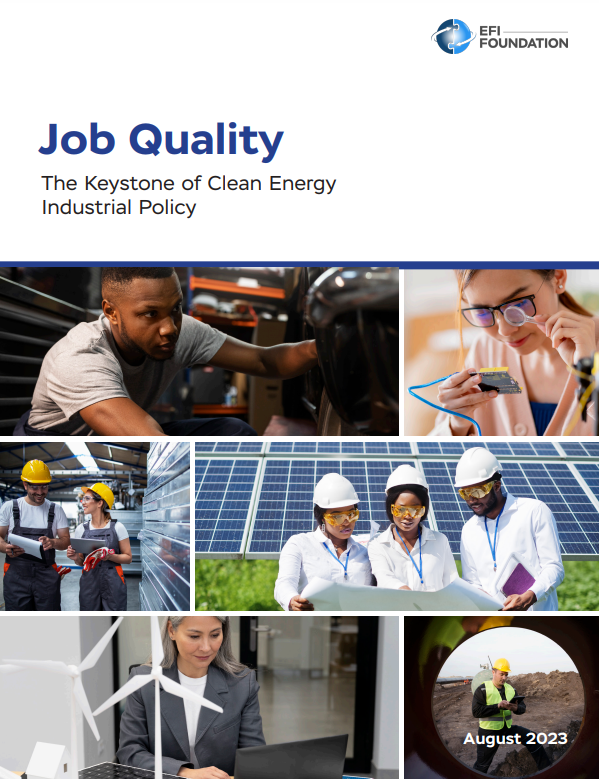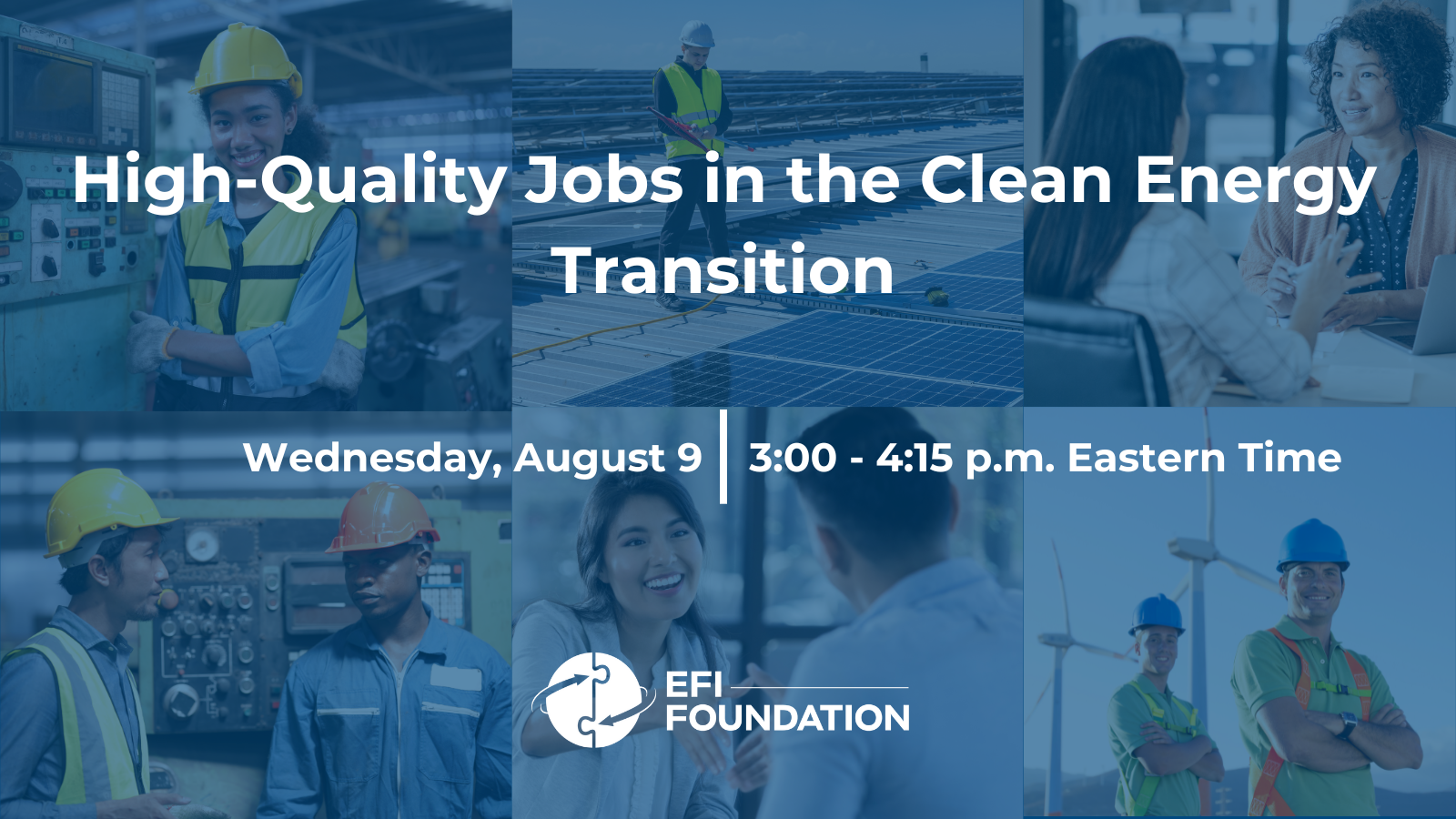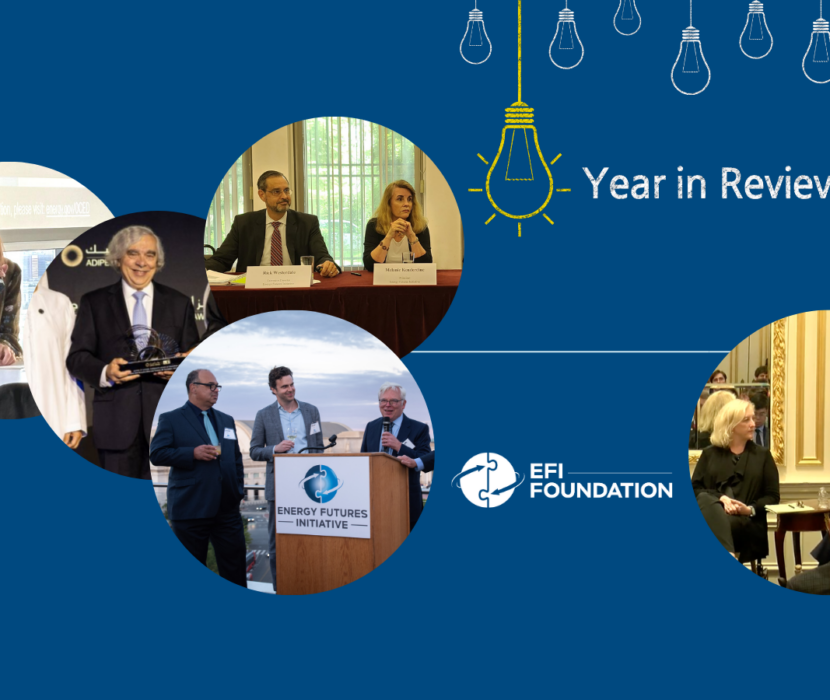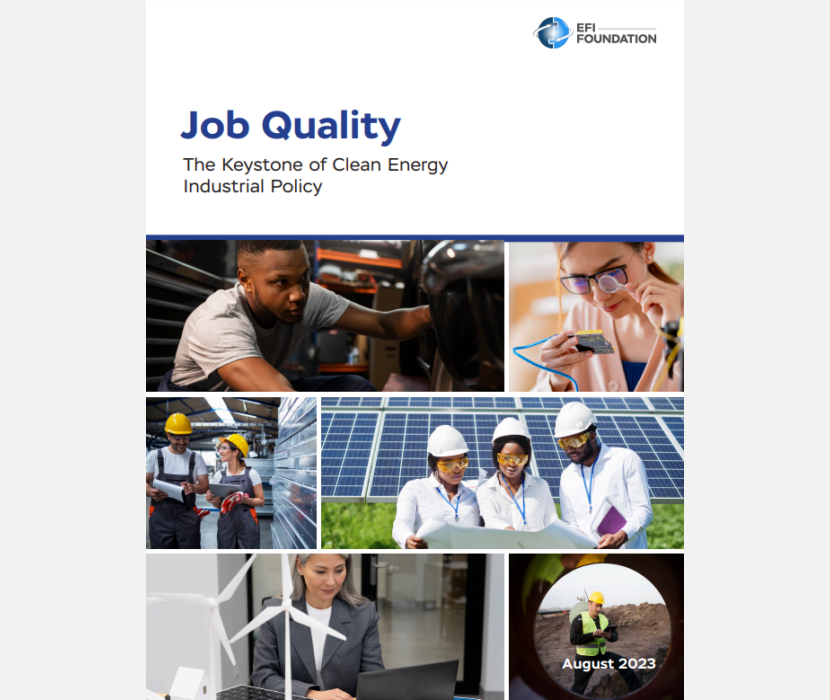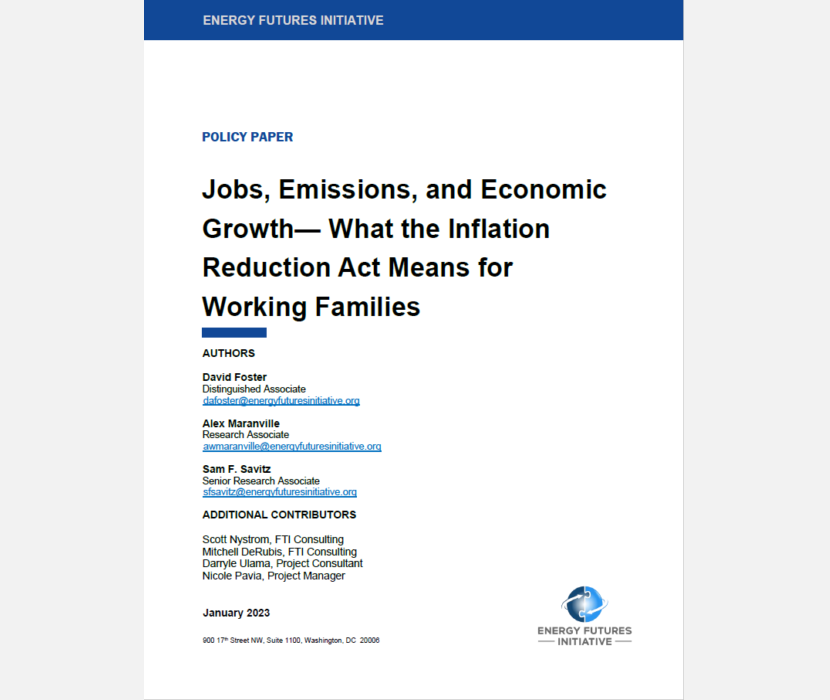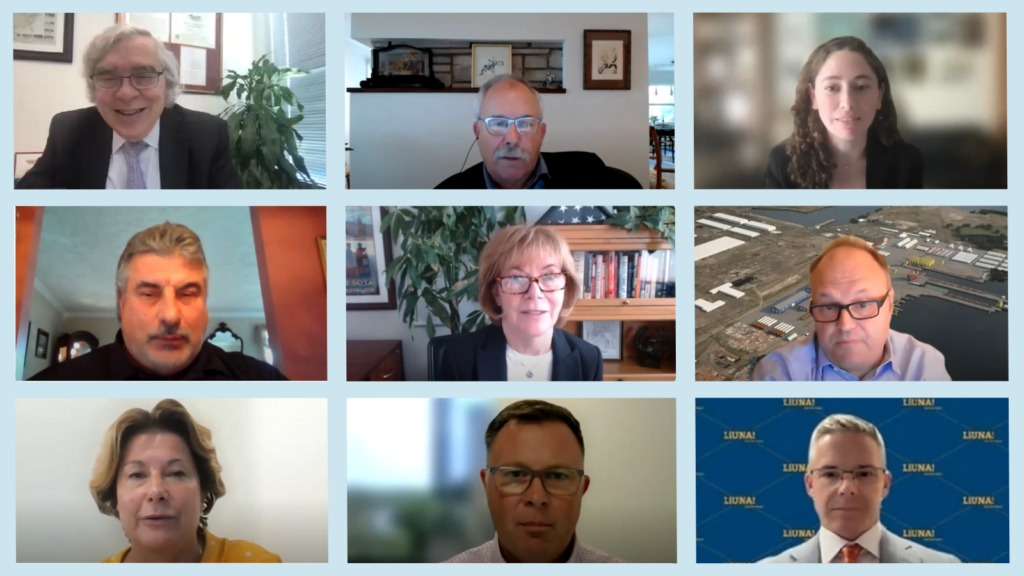
The clean energy transition will create millions of new jobs, with ripple effects across the U.S. economy. New federal investments present a historic opportunity to improve the quality of these jobs and strengthen labor standards as we tackle climate change.
On August 9, 2023, the EFI Foundation hosted a virtual event to highlight its new report on the high-quality job opportunities in the energy transition. The event featured a fireside chat between EFI Foundation CEO Ernest Moniz and Senator Tina Smith (D-Minnesota). Report coauthors David Foster (EFI Foundation Distinguished Associate) and Hannah Sachs (EFI Foundation Legal Fellow) gave an overview of the tools they analyzed in the report, which are aimed at addressing income inequality and wage stagnancy. During a panel discussion, union representatives and clean energy business leaders explained how and why they are choosing to work together using the tools to build a better workforce and uplift communities.
The report, titled “Job Quality—The Keystone of Clean Energy Industrial Policy,” examines climate and clean energy investments and standards of the Inflation Reduction Act (IRA), Infrastructure Investment and Jobs Act (IIJA), and the CHIPS and Science Act. It also provides recommendations related to seven main policy tools intended to strengthen job quality, create opportunities for union representation, and center workers in the clean energy transition.
Moniz set the stage for discussion by speaking to job and financial uncertainties for people across the United States. He said that failure to address these uncertainties will only intensify clean energy transition challenges. However, the IRA, IIJA, and the CHIPS and Science Act are catalysts to address these issues.
Report coauthor Hannah Sachs emphasized the cross-cutting opportunities: “These three pieces of historic legislation provide really a once-in-a-generation opportunity,” she said, “to create high-quality jobs with strong labor standards in both the new and major sectors of clean energy technologies.”
Job Quality Tools and Labor Standards
Sachs reiterated that the report recommendations can help maximize the effectiveness of the policy tools to help create high-quality jobs and allow workers the option of joining a union.
“This is really why we undertook this analysis,” she said, “to identify the ways in which these major job quality labor tools… can be strengthened through public funding, public investments, and public programs, given the constraints that are imposed by the structure of American labor law.”
Foster and Sachs pointed to community benefits plans as an example. Sachs explained that these plans were developed by the U.S. Department of Energy (under the three pieces of legislation highlighted) to incentivize and prioritize competitive funding applicants who commit to providing good jobs and strong labor standards.
Foster said a grantee’s community benefits plan will make up 20% of their total award score, and must address four areas: (1) investing in America’s workforce, (2) engaging communities and labor, (3) advancing diversity, and (4) implementing the Justice40 Initiative.
Agencies can enhance the impact of community benefits plans by several means, according to Foster and Sachs, including the following: (1) encouraging binding agreements between grant recipients and their union and community partners, (2) offering greater public transparency about the plans on agency websites to normalize high standards, and (3) using labor risk assessment standards in analyzing grant applications and their community benefits plans.
Minnesota Senator Tina Smith’s View on Jobs Quality
In her conversation with Moniz, Senator Tina Smith (D-Minnesota) focused on the importance of high-quality jobs in her state and nationwide. She also applauded the opportunities outlined in the report. She said that the legislation to support the clean energy transition is crucial, and that the focus of implementing that legislation should put “people at the center of that work” to experience the benefits.
Smith presented an optimistic perspective on views from across Minnesota on clean energy policy. She said that her constituents in rural areas are excited about “climate-smart” agriculture provisions passed in the IRA, and that metropolitan areas are seeing opportunities for clean energy manufacturing through the production of electrolyzers used to make clean hydrogen.
As rural and urban communities feel and see the effects of extreme weather, Smith said the “potential hopelessness” that people may feel can spur action that can strengthen competitiveness, improve job quality, and generate new opportunities for people.
“I do believe that [clean energy policies] give people in Minnesota and around the country some hope that we can seize the moment,” she said.
Union Representatives and Clean Energy Leaders
During the second half of the event, Samantha Smith of the AFL-CIO led a panel discussion with union labor and energy leaders. They discussed the legislation and policy tools, and talked specifically to their respective partnerships and how they are choosing to collaborate.
The speakers raised several issues related to project labor agreements (pre-hire agreements to establish employment terms and conditions), in part because federal law does not require these agreements (nor do some states).
To address this concern, Adam Sokolski, director of regulatory and legislative affairs at EDF Renewables, said regulators must “ask questions of project developers about construction workforce issues” in the early development and permitting stages of a project, regardless of if a state mandates project labor agreements.
Kevin Reilly, assistant director for policy at the Laborers’ International Union of North America (LIUNA)—which is in a partnership with EDF Renewables—also agreed.
“You can still, even without a hard requirement, require documentation and evidence of the labor standards that you’re going to abide by,” he said.
Panelists also addressed questions on how to ensure that community benefits plans are enforceable and translate into high-quality jobs with strong labor standards.
Timothy Mack, foundation and localization manager at US Wind, used the example of Maryland’s POWER Act, which requires the use of organized labor and includes guidelines for in-state labor. Mack pointed to this development as one precondition that is helpful during early project stages.
Mack also said that setting standards and conditions early on is one valuable way to ensure project developers “have the ability to make the appropriate plans at the right times and have a roadmap and time” for project buildout.
Jim Strong, international representative for the United Steelworkers, spoke to the partnership between his union and US Wind. Together they are working with communities and vocational schools to provide a workforce with high-quality jobs at facilities in Maryland, Strong said, especially at Tradepoint Atlantic—a massive industrial hub that will provide manufacturing for a major US Wind project. He said he does not foresee any issues with parties following community benefits plans.
“If we do [have a problem], then we’ll take the necessary steps through the collective bargaining agreement,” Strong said.
Panelists emphasized the importance of collaboration between businesses and labor organizations to ensure high-quality jobs are created and clean energy goals are met.
In closing remarks, Moniz said that the recommendations in the new EFI Foundation report can help facilitate the necessary speed and scale for the clean energy transition to succeed.
-Kaycee Hubbard, Communications Intern
Related Content
(Share this post with others.)


